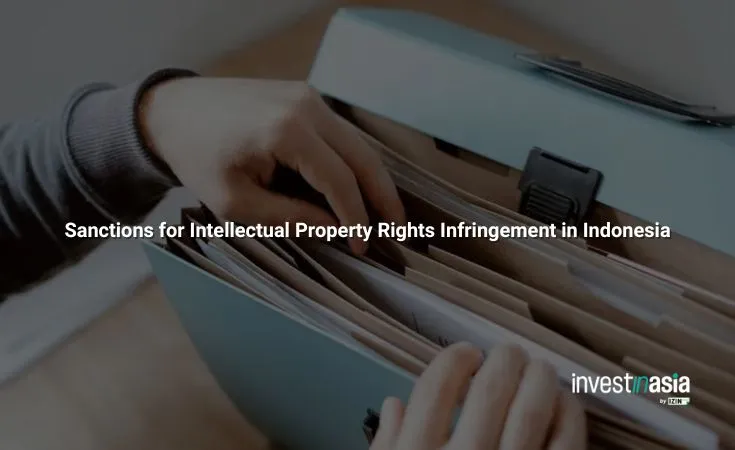Breaking intellectual property (IP) laws in Indonesia is not just a civil offense — it can lead to severe criminal penalties, including imprisonment and hefty fines. Whether you’re a local entrepreneur, a foreign company, or a digital content creator, knowing how IP laws work in Indonesia is crucial to avoiding legal trouble and protecting your business reputation.
Also read: What is Intellectual Property: Definition and Rights
Legal Penalties for IP Violations


Criminal Sanctions
Under the latest legal framework, particularly Law No. 28/2014, the Indonesian government imposes harsh penalties for intentional IP infringement. The punishments include:
- Imprisonment: Up to 7 years for serious offenses such as unauthorized reproduction or public distribution of protected content.
- Financial penalties: Fines ranging from IDR 500 million to IDR 5 billion (approx. USD 30,000–320,000) depending on the scale of damage and the type of IP violated.
These penalties serve as a deterrent and emphasize the importance of respecting others’ creative and industrial rights.
Civil Sanctions
Besides criminal charges, infringers can also be sued for damages in civil court. The court may order:
- Compensation: Payments calculated based on either actual losses suffered or the profits gained by the violator.
- Injunctions: Orders to cease the infringement immediately.
- Product recalls: Infringing goods may be withdrawn from the market.
Also read: What Happens If You Don’t Protect Your Intellectual Property?
Enforcement and Role of Authorities


The Directorate General of Intellectual Property (DJKI), operating under the Ministry of Law and Human Rights, oversees the registration and protection of intellectual property rights in Indonesia. DJKI has the authority to:
- Conduct raids and seize counterfeit goods.
- Work with law enforcement to bring criminal charges.
- Destroy pirated or counterfeit products.
Public campaigns are also conducted to raise awareness about respecting IP and the consequences of violating it.
Alternative Dispute Resolution
Not all cases go to court. IP disputes in Indonesia can also be resolved through:
- Mediation: A neutral third party assists the involved parties in coming to a mutually acceptable agreement on their own.
- Arbitration: A binding decision made by an appointed tribunal.
- Negotiation: Direct discussions between the parties involved.
ADR is often faster and less costly than litigation, making it a preferred option for commercial IP disputes.
Also read: How Strong is Intellectual Property Protection in Indonesia?
Final Thoughts: Protect and Respect Intellectual Property
Breaking intellectual property laws in Indonesia can have serious consequences — both financially and criminally. Whether you’re a creator or business operator, it’s vital to understand how the law works and to ensure your content or products are either original or properly licensed.
If you’re a foreign investor or entrepreneur operating in Indonesia, you should also be aware of the local legal framework and register your own IP to ensure legal protection. Compliance not only prevents penalties but also strengthens your brand’s credibility.
For a simpler process, you can rely on InvestinAsia’s services for IP and trademark registration in Indonesia. Our team of experts will ensure that the application is hassle-free for you.
Contact us now for FREE consultation and get a special offer!
Frequently Asked Questions
Is using pirated software illegal in Indonesia?
Yes. Using pirated software can result in both criminal and civil penalties under Indonesian copyright law.
What agency handles IP protection in Indonesia?
The DJKI (Directorate General of Intellectual Property) oversees registration, education, and enforcement related to IP.
Can foreign companies register their trademarks in Indonesia?
Absolutely. Foreign companies can register their trademarks with DJKI for protection under Indonesian law.
What’s the punishment for trademark infringement?
Criminal penalties can include imprisonment and large fines, while civil suits may result in damages and product recalls.
Is uploading copyrighted content online considered a violation?
Yes. Uploading someone else’s content without permission is considered copyright infringement, especially under digital piracy regulations.



